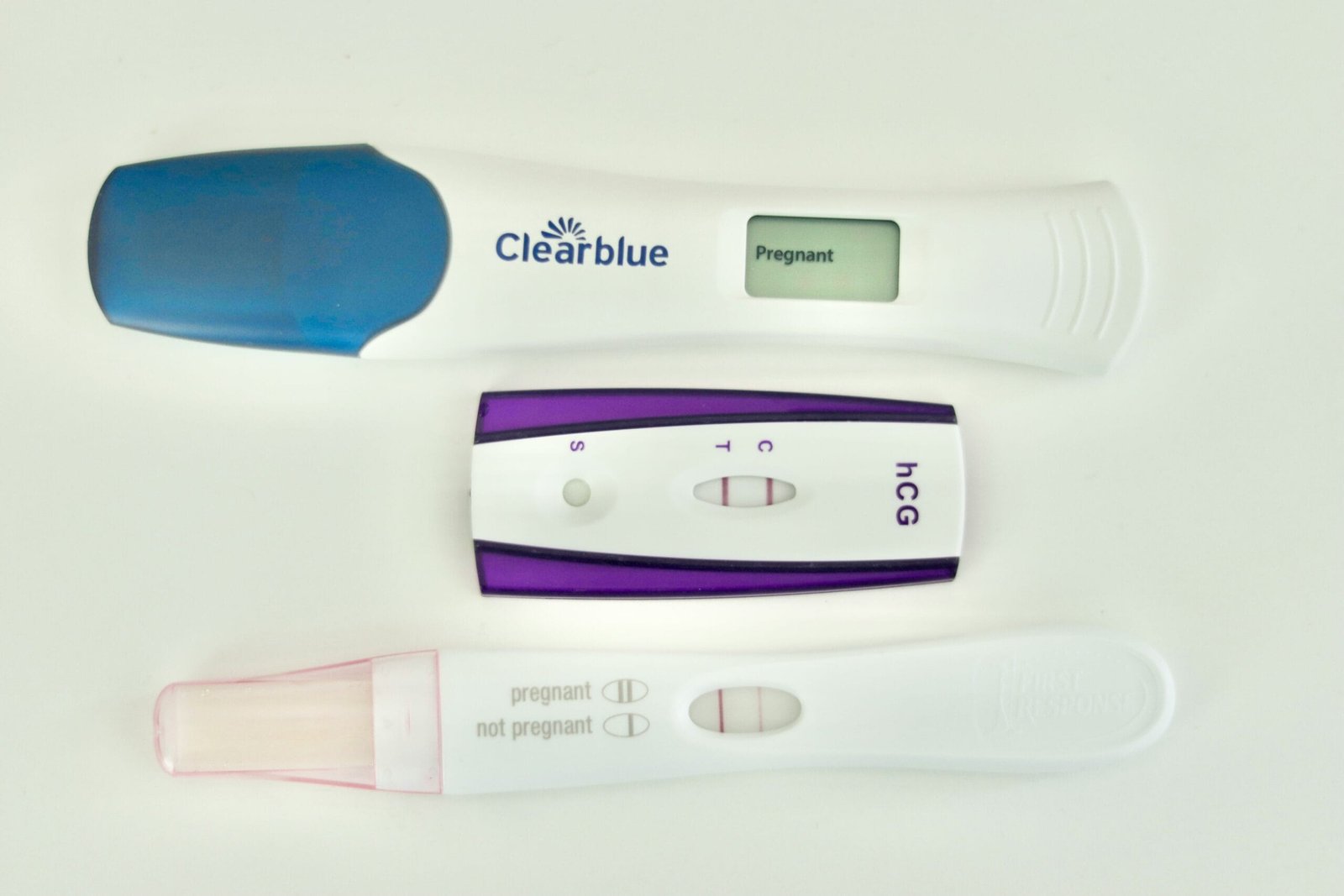Introduction to Early Pregnancy Signs
Recognizing the early signs of pregnancy is crucial for women who are trying to conceive or who may suspect they are pregnant. Early detection allows for timely prenatal care and helps in making informed decisions regarding health and lifestyle changes. These signs can vary significantly among individuals, highlighting the importance of understanding one’s own body and its signals.
Common early signs of pregnancy include missed periods, nausea, breast tenderness, and fatigue. However, it is essential to note that not all women experience these symptoms in the same way or at the same time. Some may notice subtle changes as early as a week after conception, while others might not recognize the signs until later on. This variation can be attributed to hormonal fluctuations, individual health status, and lifestyle factors.
Being aware of early pregnancy indications is not just about recognizing potential pregnancy; it also offers insights into one’s overall reproductive health. Conditions such as hormonal imbalances or other health issues can sometimes mimic pregnancy symptoms, making it imperative for women to track their bodies’ changes and communicate with healthcare providers as needed. Furthermore, understanding these signs can empower women to seek support from their partners, friends, or healthcare teams, thereby facilitating a more informed and supportive approach to pregnancy planning.
In summary, familiarizing oneself with the early signs of pregnancy aids in enhancing overall well-being and prepares women for the next steps in their reproductive journey. By paying close attention to the body’s cues, women can take proactive steps towards their health and establish a positive environment for any future developments. Recognizing these signs is a fundamental part of the journey toward motherhood.
Mild Cramping and Spotting
One of the early signs of pregnancy that many individuals notice is mild cramping, often accompanied by light spotting. These symptoms can occur shortly after conception, typically around the time when a fertilized egg implants itself into the uterine lining. Implantation bleeding is a common phenomenon, and it may present as small spots of blood that are usually paler than the typical menstrual flow.
Mild cramping associated with early pregnancy is usually distinct from menstrual cramps. While menstrual cramps tend to be more intense and are usually accompanied by a variety of other symptoms, such as bloating and mood swings, the cramps experienced during early pregnancy are typically lighter and more localized. They may feel like gentle twinges or pulls in the lower abdomen, sparking concern but generally ruling out the pain intensity that accompanies menstruation.
The duration and nature of both cramping and spotting can vary from one individual to another. Some may experience these symptoms for only a short time, while others may notice them intermittently over a few days. It is essential to monitor these symptoms closely. While mild cramping and spotting can be normal indicators of early pregnancy, they can also occasionally signal other medical concerns. Therefore, if the symptoms become severe or are accompanied by heavier bleeding, it is advisable to seek medical consultation.
In summary, recognizing mild cramping and spotting can be an initial indication of pregnancy. Understanding how these symptoms differ from menstrual discomfort can help individuals navigate their reproductive health with greater awareness and promptness.
Missed Period: A Key Indicator
One of the most significant early signs of pregnancy is a missed period. For individuals who have regular menstrual cycles, the absence of menstruation can serve as a strong indicator of a potential pregnancy. The average menstrual cycle lasts about 28 days, although it can range from 21 to 35 days, depending on various factors such as individual health, stress levels, and lifestyle. A missed period typically signals that the body is undergoing hormonal changes that are consistent with pregnancy.
When an egg is fertilized by sperm, it travels through the fallopian tube to the uterus, where it implants itself into the uterine lining. This process triggers hormonal changes that prevent the usual shedding of the uterine lining, which is what occurs during a menstrual cycle. As a result, the individual may not experience their expected period, making the missed menstruation one of the first early indicators of pregnancy. Although some women may experience light bleeding or spotting during this time—often referred to as implantation bleeding—this is not the same as a regular period and should not be mistaken for one.
It is important to note that a missed period can be attributed to various factors beyond pregnancy, including stress, significant weight changes, and medical conditions such as polycystic ovarian syndrome (PCOS). Therefore, while a missed period is a common sign to look for, it should be corroborated with other early signs of pregnancy such as nausea, breast tenderness, and fatigue. Those who suspect they may be pregnant should consider taking a home pregnancy test if their period is missed, or consult a healthcare professional for further evaluation.
Fatigue and Increased Tiredness
Experiencing fatigue and increased tiredness is one of the early signs of pregnancy that many women report in the initial weeks after conception. This profound sense of exhaustion is often attributed to the significant hormonal changes that occur during this period. After implantation, the body begins to produce higher levels of progesterone, a hormone crucial for maintaining pregnancy. While this hormone supports the development of the fetus, it can also have sedative effects, leading to increased drowsiness and a general sense of fatigue.
The early signs of pregnancy can vary from person to person; however, this overwhelming tiredness is frequently noted by many expectant mothers as a telltale indicator. The metabolic changes that occur in the body contribute further to this fatigue. During early pregnancy, a woman’s body works tirelessly to provide adequate nutrients and blood supply to support the developing embryo, which can result in depleted energy levels. Additionally, these physiological changes may affect a woman’s sleep patterns, causing disruptions that exacerbate feelings of tiredness.
In combination with other symptoms, such as nausea and emotional fluctuations, fatigue can be a considerable challenge to manage during the first trimester. It is essential to listen to one’s body during this time and seek rest whenever possible. While embarking on this new journey, incorporating self-care practices such as short naps and relaxation techniques can be beneficial for restoring energy levels. Ensuring a balanced diet rich in vitamins and minerals may also help counteract some of the fatigue encountered. Recognizing fatigue as one of the early signs of pregnancy can ultimately aid women in understanding and adapting to the profound changes occurring within their bodies.
Nausea and Morning Sickness
Nausea, commonly known as morning sickness, is one of the early signs of pregnancy that can manifest shortly after conception. It typically begins around the sixth week of pregnancy and may persist well into the first trimester, affecting a majority of pregnant individuals. While often referred to as “morning sickness,” this nausea can occur at any time of the day, leading to discomfort and challenges in maintaining regular daily activities.
The precise cause of nausea during early pregnancy remains a topic of research, but it is believed to be linked to hormonal changes, particularly the increase in human chorionic gonadotropin (hCG) and estrogen. Additionally, sensitivity to certain smells or particular foods may trigger bouts of nausea, making it essential for expectant mothers to identify their specific triggers. Commonly reported triggers include strong odors from cooking, certain perfumes, or even the smell of coffee.
Managing nausea can vary significantly from one person to another. Many find that small, frequent meals can help minimize discomfort, as an empty stomach may exacerbate feelings of nausea. Foods that are bland, such as crackers or toast, are often recommended. Staying hydrated is also crucial, so sipping on clear liquids, such as ginger ale or herbal teas, can provide relief. Some individuals may also find that vitamin B6 supplements or ginger can be helpful in alleviating symptoms.
It is important for women experiencing severe nausea or vomiting that prevents them from keeping food or fluids down to consult a healthcare provider. In such cases, medical interventions may be necessary. Recognizing nausea as one of the early signs of pregnancy can be an important step in understanding one’s changing body and preparing for the journey ahead.
Changes in Breasts: Soreness and Tingling
One of the early signs of pregnancy that many women may notice is a change in breast sensation, including soreness and tingling. These symptoms often arise within a week or two after conception due to hormonal shifts occurring in the body. Estrogen and progesterone levels significantly increase during early pregnancy, leading to various physical changes. As these hormones stimulate breast tissue, women may experience heightened sensitivity, tenderness, or a tingling sensation in their breasts.
In the initial stages of pregnancy, the body undergoes various adjustments to support the developing embryo. This includes the development of milk ducts and the preparation of the mammary glands. As a result, breasts may feel fuller, heavier, and more sensitive to touch. Some women may even report a painful sensation, particularly in the area surrounding the nipples. These changes can be unsettling for new mothers-to-be, but they typically signal that the body is adapting to support a pregnancy.
It is crucial to note that while breast tenderness is often associated with early signs of pregnancy, it can also occur due to other reasons, such as hormonal fluctuations associated with the menstrual cycle or certain medical conditions. Therefore, while experiencing soreness or tingling in the breasts may be an indication of pregnancy, it is advisable for women to consider other signs and symptoms in conjunction with breast changes. Keeping track of these changes and monitoring other early signs of pregnancy can lead to a more informed understanding of one’s reproductive health.
Understanding these breast changes can help women better navigate the early stages of pregnancy and prepare for what lies ahead. As they become accustomed to these sensations, it is important for them to seek medical advice when needed for reassurance and guidance.
Frequent Urination and Bloating
Among the common early signs of pregnancy, frequent urination and bloating are two symptoms that can often be observed in the initial weeks following conception. These particular signs may emerge soon after a missed menstrual period, indicating the body’s adaptation to the early stages of pregnancy.
Frequent urination occurs as the growing uterus begins to exert pressure on the bladder. This discomfort can lead women to feel the need to urinate more often than usual. It is important to recognize that this symptom is partly due to hormonal changes, particularly the increased production of the hormone human chorionic gonadotropin (hCG), which plays a critical role in maintaining pregnancy. As the body undergoes various adjustments, this increased urinary frequency can become a significant part of daily life for many women in the early stages of pregnancy.
Bloating is another common symptom that can indicate the early signs of pregnancy. Hormonal fluctuations, primarily due to the rise in progesterone levels, can lead to a sense of fullness or tightness in the abdominal area. This sensation is often coupled with digestive changes that can result in gas or constipation, further contributing to the feeling of bloating. Women may notice these physical changes, including clothing becoming slightly tighter around the waist, heightened sensitivity in the abdomen, or discomfort associated with digestion.
Recognizing frequent urination and bloating as potential early signs of pregnancy is crucial for women who are actively trying to conceive or those who suspect they may be pregnant. These symptoms can serve as important indicators that warrant further investigation, such as taking a home pregnancy test or consulting with a healthcare professional to confirm pregnancy.
Mood Swings and Emotional Changes
During the early stages of pregnancy, women often experience a myriad of mood swings and emotional changes, which can be attributed primarily to the significant hormonal fluctuations occurring in their bodies. These variations in hormones, particularly estrogen and progesterone, play a critical role in regulating a woman’s emotional state and can lead to feelings of irritability, anxiety, sadness, or elation. The early signs of pregnancy are not limited to physical changes; the psychological impact can be just as pronounced, altering a woman’s emotional landscape.
As the body begins to adapt to the developing fetus, the sudden increase in hormones can lead to heightened sensitivity. This may manifest in unexpected tears over matters that would previously seem trivial or increased frustration with daily tasks. These emotional responses can fluctuate rapidly, creating a sense of instability that some women might find challenging to navigate. Additionally, factors such as fatigue, nausea, and other physical symptoms associated with early pregnancy often amplify these emotional changes, making it essential for expectant mothers to acknowledge and manage their feelings.
Support from partners, family, or friends can play a pivotal role in helping women cope with these mood swings. Open communication about the emotional challenges accompanying early signs of pregnancy can foster understanding and support, both crucial for emotional well-being. It is also beneficial for women to practice self-care and engage in relaxation techniques such as mindfulness or gentle exercise to help balance their moods. Recognizing that mood swings are a normal part of pregnancy can encourage women to embrace their emotional journey and seek support when needed, paving the way for a healthier emotional experience during this transformative time.
Physical Changes: Temperature and Blood Pressure
One of the key physiological changes that may signal the early signs of pregnancy is the alteration in body temperature. Shortly after conception, many women experience a slight increase in their basal body temperature, which is the body’s temperature at rest. This rise in temperature is primarily driven by hormonal changes, particularly the increased production of progesterone. Progesterone plays a crucial role in maintaining the uterine environment suitable for a developing embryo and is instrumental in sustaining early pregnancy. The slight elevation in temperature is often persistent and can be one of the first noticeable physical changes that indicate pregnancy.
In addition to temperature changes, variations in blood pressure can also provide important clues about pregnancy status. During early pregnancy, blood volume significantly increases to support the growing fetus. This increase in blood volume may result in changes in blood pressure readings. Typically, some women may experience a drop in blood pressure during the first trimester, leading to feelings of dizziness or lightheadedness. Conversely, others may not notice any significant changes to their blood pressure levels. Understanding these dynamics can help in recognizing the early signs of pregnancy, as fluctuations in blood pressure can reflect the body’s adaptation to the demands of pregnancy.
Monitoring these changes—specifically an increase in basal body temperature and variations in blood pressure—can serve as a practical approach for individuals who are trying to conceive. Recognizing these early signs can prompt women to take further steps, such as conducting a pregnancy test or consulting a healthcare professional for confirmation. By being aware of these physiological changes, women can equip themselves with important knowledge that can facilitate timely responses in their reproductive health journey.
Other Symptoms and the Pregnancy Glow
Recognizing the early signs of pregnancy can be a multifaceted process. While some symptoms are well-known, others can vary greatly among women. For instance, heartburn is a common occurrence that could signal changes occurring in the body. The hormone progesterone relaxes the muscles in the uterus but also affects the digestive tract, potentially leading to increased instances of heartburn or acid reflux. This symptom often manifests in early pregnancy and may persist throughout.
Faster heartbeats are another possible early sign of pregnancy. In response to the growing demands for oxygen and nutrients from the developing fetus, a pregnant woman’s heart rate may increase. This physiological change is a natural response to support the increased blood flow necessary during this period. Women might notice this change during routine activities, and it can create a feeling of heightened awareness or excitement regarding their condition.
Acne is often perceived as a nuisance during adolescence, but hormonal fluctuations in early pregnancy can lead to its resurgence. Some women may find that changes in skin condition indicate the onset of pregnancy. Noticeable weight gain could emerge as well, although this may vary widely among individuals. Certain women might notice changes in their body shape even in the initial weeks, which can be attributed to hormonal activity and fluid retention.
Among all these symptoms, the ‘pregnancy glow’ stands out. Many women report a radiant appearance during early pregnancy, attributed to hormonal changes, increased blood volume, and improved skin elasticity. This beautiful aspect can enhance self-esteem and give a positive outlook during a time of substantial change.
Overall, it is crucial to recognize that each woman’s experience with the early signs of pregnancy is unique. While some may resonate with these symptoms, others may notice different changes altogether. Consulting a healthcare provider is essential for confirming pregnancy and understanding what these early signs signify for individual health.



